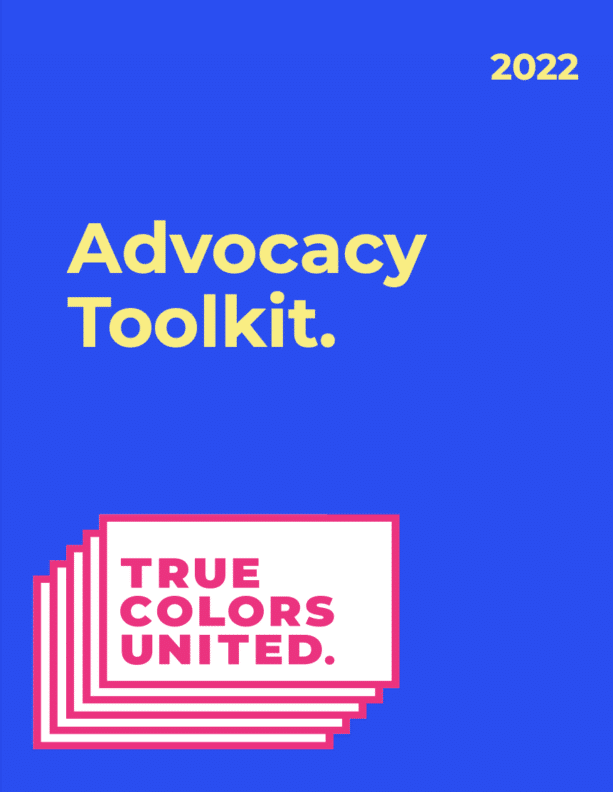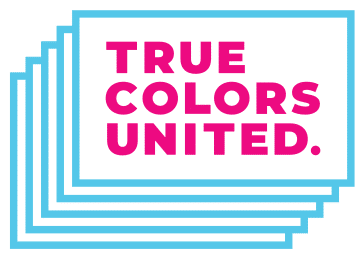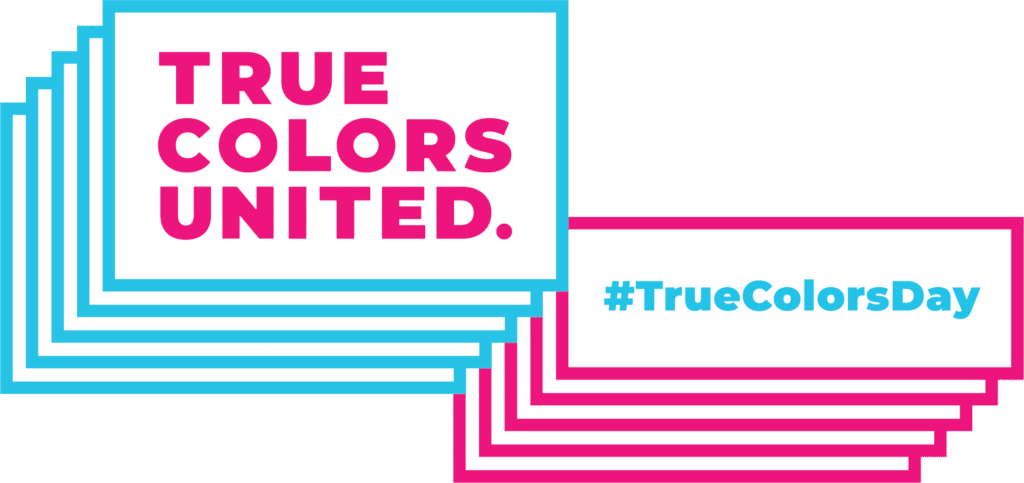
#TrueColorsDay | April 24, 2024
Lesbian, gay, bisexual, transgender, queer, intersex, and questioning (LGBTQ+) young people are 120% more likely to experience homelessness than non-LGBTQ+ youth. We believe that everyone deserves a safe place to call home – regardless of their class, race, ethnicity, gender, or sexual orientation.
#TrueColorsDay is an international day of advocacy around preventing and ending LGBTQ+ youth homelessness. It’s also a day to celebrate people who are working to ensure LGBTQ+ people have housing no matter the challenge. Across the world, young people and adult partners are making significant progress to end youth homelessness. Communities are mobilizing to create change and youth are leading powerful movements based on LGBTQ+ and racial equity. #TrueColorsDay serves as a gateway for people to get involved in new ways.
#TrueColorsDay2024
The wave of anti-LGBTQ+ bills sweeping the country and the impending case of Johnson v. Grants Pass share a profound interconnection, both revolving around the rights and well-being of LGBTQ+ individuals, particularly those facing homelessness.
These anti-LGBTQ+ bills, with their discriminatory provisions, exacerbate the challenges already plaguing transgender youth, pushing many toward homelessness. By restricting access to gender-affirming healthcare, limiting restroom and sports participation rights, or fostering hostile school environments, these bills contribute to an atmosphere of marginalization and exclusion.
On #TrueColorsDay, we will speak out in a unified voice and take coordinated action to defend the human rights of LGBTQ+ youth experiencing homelessness.
Johnson v Grants Pass
Simultaneously, the Johnson v. Grants Pass case addresses the legality of criminalizing individuals for being homeless, a disproportionate number of whom are transgender. The case originated in Grants Pass, Oregon, where the city authorities began issuing citations to individuals found sleeping in public spaces, despite the insufficient availability of secure and accessible shelter accommodations. The outcome of this case will have far-reaching implications for homeless trans individuals, as it determines whether cities can criminalize their existence simply for lacking adequate shelter options.
In essence, both the anti-LGBTQ+ bills and the Johnson v. Grants Pass case underscore the systemic barriers and injustices faced by transgender individuals, particularly those who are homeless or at risk of homelessness. They highlight the urgent need for comprehensive legal protections and societal support to ensure the dignity and rights of all transgender people are upheld.
Housing is a Human Right
While incredible progress on LGBTQ+ rights has been made across the world, LGBTQ+ people still face discrimination and violence simply for being who they are.
Housing is not merely a commodity; it is a fundamental human right that underpins individual dignity, social justice, and community well-being. By recognizing and prioritizing housing as a human right, we can work towards creating inclusive, equitable societies where everyone has a place to call home.
Here’s what we believe:
- Housing is a human right.
- Everyone deserves a safe place to call home – regardless of their class, race, ethnicity, gender, or sexual orientation.
- LGBTQ+ youth should never have to fear discrimination or violence in seeking housing or services.
- To end homelessness, we must end systemic racism in housing, healthcare, and policing – which contribute to higher rates of homelessness for Black, Brown, and Indigenous youth.
- Immigrants and asylum-seekers – many of whom are LGBTQ+ and fleeing persecution – deserve a safe home.
- Young people are the present and future leaders of the youth homelessness movement. Nonprofit organizations should support and facilitate youth activism.
Get Educated and Educate Others
Reach Out To Your Legislators
Engage in digital advocacy

Using digital tools for advocacy and organizing! Be where your audience is and where you can influence the most people to join your message. To avoid spreading your energy and resources too thin, you shouldn’t commit to being on every social media platform. Make digital participation the easiest thing for your audience. Depending on your goals, ask yourself how it would be best for your audience to engage, and then make it very simple for them. Make it as universal as possible.

